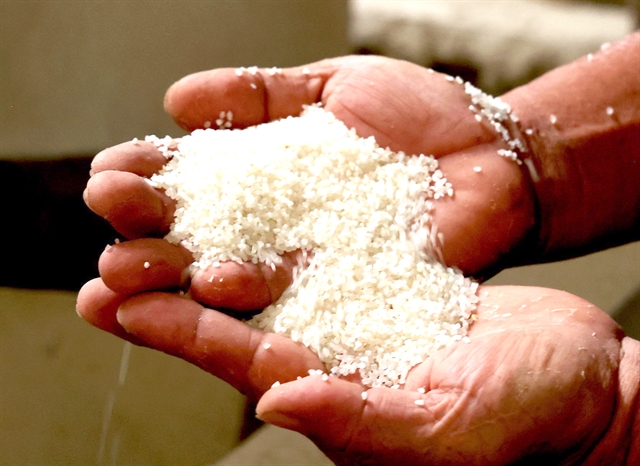The PM instructed the Ministers of Agriculture and Rural Development, Industry and Trade, and Foreign Affairs and chairpersons of the people’s committees of provinces and centrally-run cities to focus on carrying out measures to step up rice production and exports.

Prime Minister Pham Minh Chinh has issued an official dispatch on enhancing the implementation of tasks and measures to promote rice production and export.
The dispatch notes that the world's situation was complicated and unpredictable in the first months of 2023, negatively affecting the recovery and growth of the global economy as well as the production and export of food and foodstuffs, including rice.
Viet Nam's rice exports in the first half of this year increased by 22.2 per cent in volume and 34.7 per cent in value compared to the same period last year, contributing to the growth of the agricultural sector and the country’s economy.
However, rice exports still face many difficulties, such as market development failing to match potential, fierce competition from rice exporting countries, and high input costs, according to the dispatch.
The PM instructed the ministers of Agriculture and Rural Development, Industry and Trade, and Foreign Affairs, as well as the chairpersons of the People’s Committees of provinces and cities to focus on carrying out measures to step up rice production and exports in the coming time.
Accordingly, the Ministry of Agriculture and Rural Development will coordinate with concerned ministries, agencies and localities to continue to perfect mechanisms and policies to create favourable conditions for farmers and businesses to step up research and development of high-quality rice varieties in line with the market requirements. Digital transformation should be promoted along with the application of scientific and technological advances in production to increase productivity and improve rice quality.
The Ministry of Industry and Trade was requested to work with relevant ministries, agencies and localities to diversify rice export markets and organise trade promotion activities to maintain traditional rice export markets such as the Philippines, China, Indonesia, and the Africa as well as develop new, potential markets.
The Ministry of Foreign Affairs was directed to strengthen the activities of overseas Vietnamese representative agencies in capturing market information to support rice exporters and coordinate with ministries and agencies to further enhance the promotion of Vietnamese rice brands and products in foreign countries and territories.
Chairpersons of the people’s committees of provinces and centrally-run cities were assigned to make rice production plans, and closely collaborate with ministries, agencies, the Vietnam Food Association (VFA) and rice traders to actively remove difficulties related to rice export.
The VFA will provide information on the global rice market as well as the demand of partners for rice exporters and concerned localities, and actively initiate trade promotion programmes relevant to each market, contributing to promoting the brand of Vietnamese rice. — VNS





